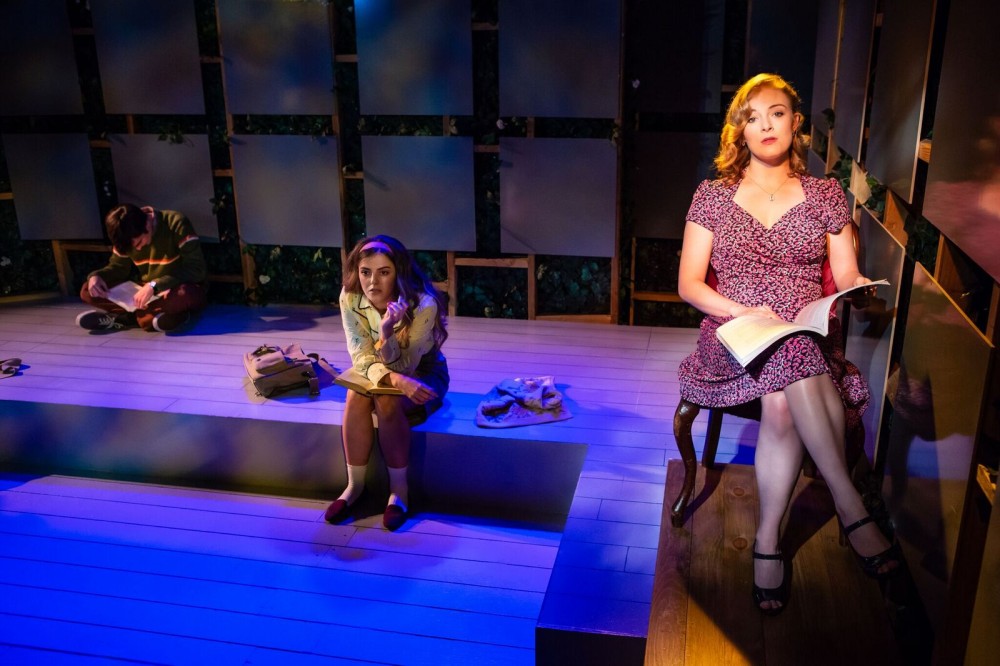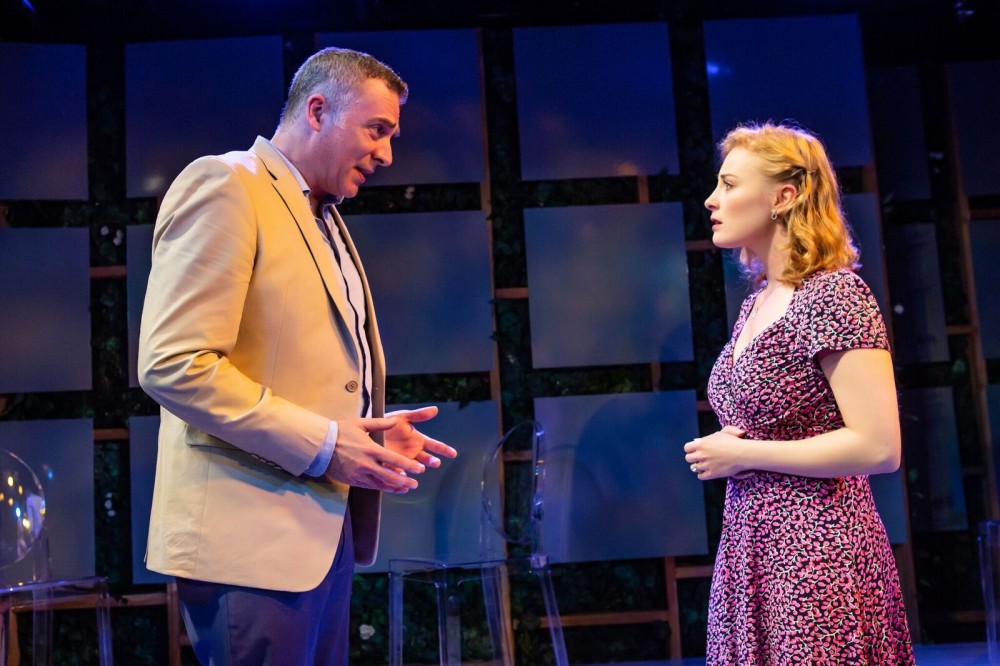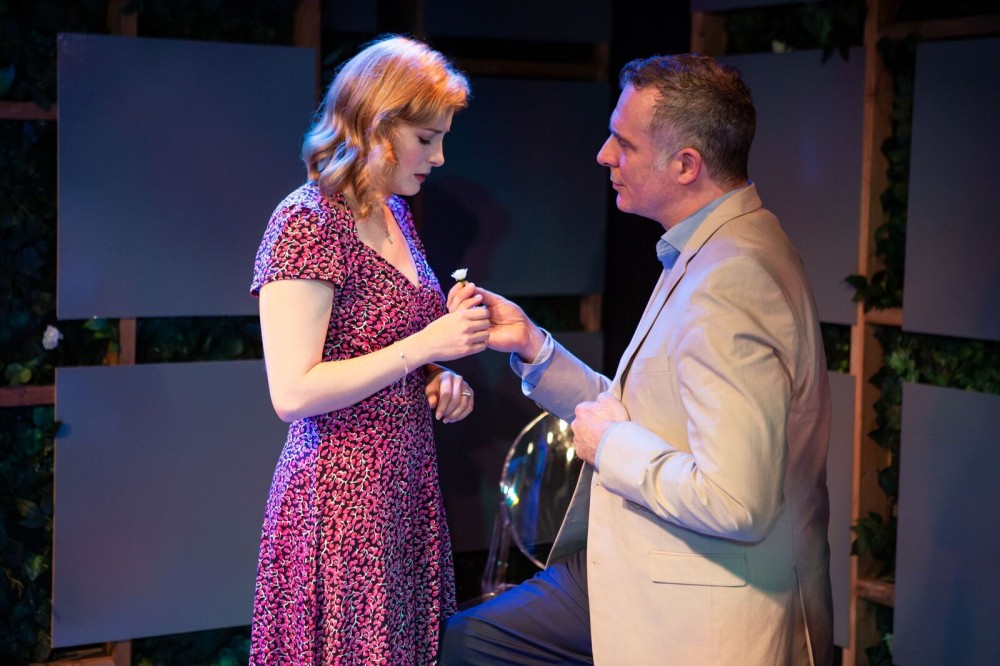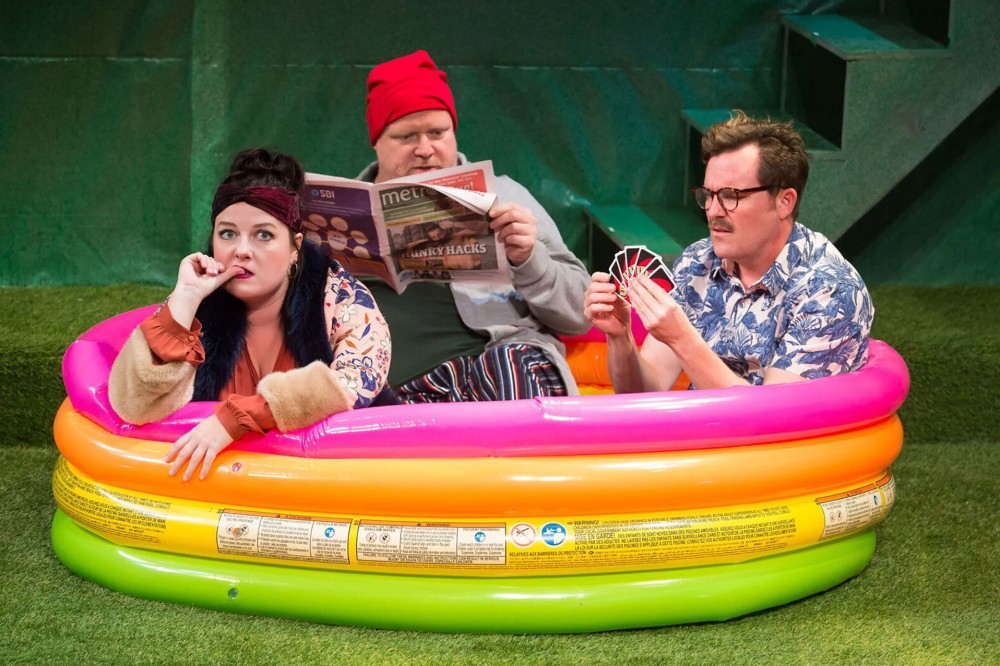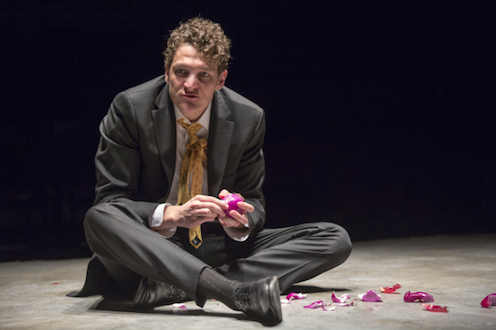By Joseph Pisano
“If you are afraid of loneliness, don’t marry.” Anton Chekhov’s sardonic advice could serve as a solid epigraph for the Brian Friel double bill, Lovers: Winners and The Yalta Game, now playing at the Irish Repertory Theatre, which shouldn’t be too surprising considering Friel’s well-deserved reputation as the “Irish Chekhov” and the fact that the latter work is an adaptation of the great Russian author’s exceedingly unsentimental short story “The Lady with the Dog.” Written more than three decades apart, the previously unpaired (as far as I can tell) tragicomedies prove that although experience certainly deepened Friel’s thoughts about love over the years, it did absolutely nothing to soften them.
When it was first performed on a Dublin stage in 1967, Lovers: Winners raised eyebrows because of a plot that kicked off with its two teenage characters already beset by carnal trouble. Three weeks from their shotgun nuptials, the serious-minded Joe (Phil Gillen) and the perpetually chattering Mag (Aoife Kelly) rendezvous for a study date on a hilltop overlooking Ballymoor, an Irish village that, thanks to their youthful romance, will be the last place the couple ever sees. If that sounds ominous, well, it should.
Narrating the play are a nameless man (Aidan Redmond) and woman (Jenny Leona), who take turns dispassionately reading from a police report that, like the script for a Greek chorus, reveals past, present, and future information about Joe and Mag’s doomed lives. For Friel the real tragedy, though, isn’t what happens to the hopeless lovebirds a few hours later, which he makes almost no effort to obfuscate, but, rather, what would have happened to them if they had somehow managed to escape their merciful fate. As the play’s mordant title suggests, Friel considers it a stroke of luck that their inevitable marital disappointments ended before they had a chance to begin.
Unmitigated cynicism always carries a subversive thrill, but Friel is so enamored with his own scathing sensibility that he can’t tell when it has run its course. Well before he’s given us all the reasons Joe and Mag could never have been happy together–temperament, social class, maybe she killed her brother–the play’s straightforward pessimism and overworked structure start to lose their grip on our attention. Ironically, what keeps us at least minimally engaged to the end is the utterly charming chemistry between Gillen and Kelly, which, in a strange way, becomes an argument against Friel’s mocking certainty.
Lovers: Winners is typically followed by a companion one-act Lovers: Losers, which ends with its two lead characters very much alive and stuck in the sort of oppressive marriage Joe and Mag never had to endure. Rather than just inverting the grim joke after the intermission, however, director Conor Bagley instead wisely chooses to stage one of Friel’s later works, The Yalta Game, a far more complex and disturbing depiction of the uncertainties, delusions, and outright lies that inform so much of what we call love.
While hanging out in the Crimean resort city’s central square, Dmitry (Redmond), a Moscow accountant and swaggering cad, meets Anna (Leona), a young woman who, like him, has come on holiday without her spouse. At first, she seems immune to the much older Dmitry’s sly advances, but he quickly wears Anna down by teaching her Yalta’s most famous pastime: gazing at your fellow tourists and inventing outrageous stories about their lives. Trapped in a boring marriage to a man about Dmitry’s age, she’s desperate for a new adventure, even if it takes her down exactly the same path.
As Dmitry knows she will, Anna falls hard for him, but he’s saved from any messy emotional confrontations when her husband’s fortuitous illness unexpectedly sends Anna home. Normally, Dmitry would have regarded this vacation fling as a complete success. But there’s one problem: he can’t stop thinking about Anna.
Far from turning sentimental in his old age, Friel instead masterfully upends our romantic expectations. Not only are we never sure if Dmitry and Anna’s feelings for each other are real, Friel even casts doubt on whether or not they ever actually met. Echoing the game in the square, Dmitry and Anna’s mutual declarations of love might just as well have been mutual fantasies, meant to distract from the soul-crushing boredom of their day-to-day lives. Elaborating on this theme, Friel also adds a few meta-theatrical touches to remind us that it’s not just the characters on the stage who are trying to lose themselves in make-believe.
Once again, the actors strengthen the material, with Leona poignantly embodying Anna’s youthful vulnerability and the charismatic Redmond seductively overcoming our doubts that Dmitry could ever overcome Anna’s doubts. Valiantly assisted by set designer Daniel Prosky and lighting designer Michael O’Connor, Bagley tries to visually tie the two plays together at the end, but it’s a clunky and unnecessary effort, especially since he’s already pulled off the much more worthwhile feat of showing us how a playwright can grow.
Two By Friel. Through December 23 at the Irish Repertory Theatre’s W. Scott McLucas Studio Theatre (132 West 22nd Street, in Manhattan). Two hours and fifteen minutes with one intermission. www.irishrep.org





